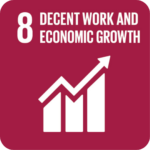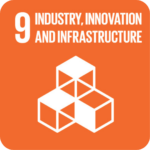Interview Tips for Freshers: How to Ace Your First Job Interview

Introduction
Your first job interview can feel like a nerve-wracking experience. As a fresher, you may have all sorts of doubts swirling in your head — Will they ask tough questions? Do I have enough skills for the job? What if I mess up? These are common fears, but the good news is that with the right preparation, you can overcome them and leave a lasting impression.
Getting through your first interview is about more than just showcasing your skills; it’s about showing confidence, enthusiasm, and a willingness to learn. In this article, we’ll walk you through essential tips that will not only help you prepare for your interview but also increase your chances of success.
Research the Company Thoroughly
One of the first steps before walking into any interview is to know the company inside out. Imagine being asked, “Why do you want to work here?” and not having a clue about what the company does. That’s a big no-no!
Start by looking at the company’s website — check out their About Us page, their products or services, and their company culture. Don’t forget to read recent news or articles about the company. This shows that you’re genuinely interested and not just applying blindly.
Understand the Job Description
It’s easy to skim over a job description and think, I’ll just figure it out later. But taking the time to break it down can be a game-changer. Look at the key responsibilities and required skills. Do you know how to handle the tasks listed? Even if you don’t have direct experience, think about transferable skills from your academic projects or internships.
For example, if the job requires teamwork, mention your experience working on group projects during your studies. If the role asks for problem-solving skills, talk about how you approached challenges during your academic journey.
Prepare Your Resume and Portfolio
Your resume is the first impression you’ll make, so make it count. As a fresher, focus on highlighting your education, internships, projects, and any volunteer work. Don’t have much work experience? No problem! Include achievements from extracurricular activities or academic successes.
If possible, bring along a portfolio — this can include any projects, presentations, or creative work you’ve done. Even if the job isn’t directly creative, having something tangible to show can leave a lasting impact.
Practice Common Interview Questions
Certain questions pop up in almost every interview, especially for freshers. Here are a few you should definitely prepare for:
- Tell me about yourself.
- Why do you want to work here?
- What are your strengths and weaknesses?
- Where do you see yourself in five years?
A great technique to structure your answers is the STAR method — Situation, Task, Action, Result. For instance, when discussing a group project, briefly describe the situation, explain your role, what actions you took, and the outcome.
Work on Your Communication Skills
Clear communication is key in any interview. Practice answering questions aloud and work on minimizing filler words like “um” and “uh”. Equally important is your non-verbal communication — maintain eye contact, sit up straight, and offer a firm handshake. These small details speak volumes about your confidence.
Dress Professionally
First impressions matter, and how you dress sets the tone before you even say a word. Opt for professional attire — think of a clean, well-fitted suit or formal dress. Even if the company culture is casual, it’s better to be slightly overdressed than underdressed for your first interview.
Be Punctual
There’s no better way to signal professionalism than by arriving on time. Plan to arrive at least 10-15 minutes early. This gives you time to settle your nerves and review any notes you’ve prepared. Running late, even for a legitimate reason, can start your interview on a negative note.
Body Language and Confidence
Nerves are natural, but you can still project confidence through your body language. Smile when you greet the interviewer, sit with good posture, and keep your hands relaxed. Remember, it’s okay to feel nervous, but don’t let it affect your composure. Confidence is key, even if you have to “fake it till you make it!”
Ask the Right Questions
Interviews aren’t just about answering questions; they’re also an opportunity to ask them. Preparing thoughtful questions shows your interest in the role and company. Ask about the team, the company’s growth plans, or what a typical day looks like in the position you’re applying for. It not only demonstrates curiosity but also helps you gauge if the company is a good fit for you.
Showcase Your Soft Skills
Many freshers worry they lack technical experience, but don’t underestimate the power of soft skills. Teamwork, adaptability, problem-solving, and leadership are all qualities employers value. Give examples from your academic life or personal experiences where you displayed these skills. This adds depth to your responses and helps the interviewer see your potential.
Be Honest About Your Experience
It’s tempting to embellish your resume or exaggerate your experience, but honesty is always the best policy. If there’s something you don’t know, admit it and express your eagerness to learn. Interviewers appreciate sincerity, and it can often work in your favor. Being genuine will also help you avoid awkward situations if you’re asked to explain something you exaggerated.
Handle Nervousness and Anxiety
Feeling nervous is normal, especially for freshers. But there are ways to manage it. Take deep breaths before the interview, and try to maintain a calm mindset. Focus on the present moment instead of worrying about what could go wrong. Remember, interviews are a two-way street — they’re as much about the company finding a fit as they are about you doing the same.
Follow Up After the Interview
Once your interview is done, don’t forget to follow up with a thank-you email. Keep it short and professional. Thank the interviewer for their time, briefly reiterate your interest in the role, and express your enthusiasm for the opportunity. A follow-up shows you’re courteous and genuinely interested.
Conclusion
Landing your first job can feel daunting, but interviews are an incredible opportunity to show who you are beyond just your qualifications. Research, practice, and confidence are your best friends in the process. With these tips, you’re well on your way to acing your interview and moving closer to your dream job. Remember, every interview is a learning experience — so embrace it!








